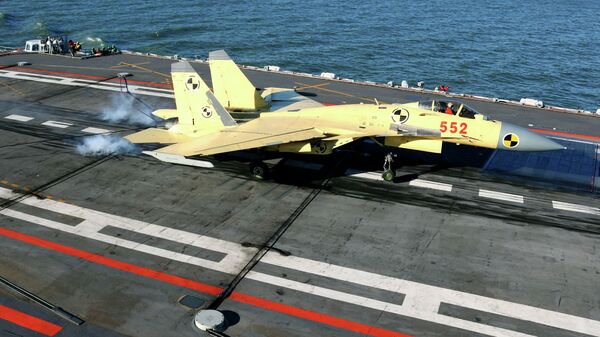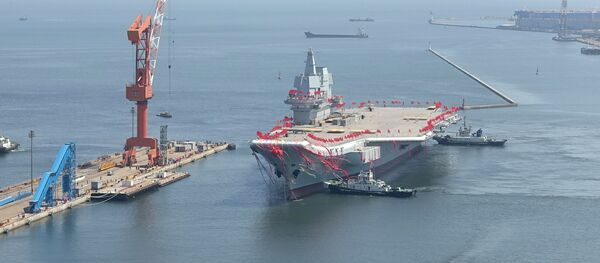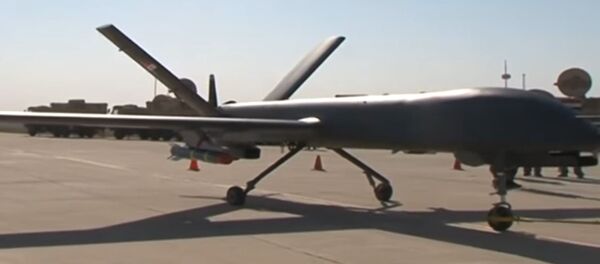"The joint operations of manned military aircraft, like fighter jets, and UAVs is the drone's future," the Global Times cited Shi Wen, the designer of China's Rainbow attack drones, as saying on Tuesday.
Li Jie, a Chinese naval expert, called on Beijing to allocate more resources toward developing carrier-based UAVs. "Considerable resources are need in carrier-based UAV research," Li told the Global Times, noting that continuing this research won't be feasible without "government support."
"Although the military has not released any information, research into carrier-based UAVs started long ago, and ship-based UAVs on destroyers and frigates have already been used in training," Shi told reporters in Beijing.
China's maritime construction sector completed its first domestically built aircraft carrier in April 2017. The Type 001A carrier is slated to start sea trials later this month. Down the line, the PLA Navy seeks to operate four carrier strike groups by 2030. If all goes according to plan, one of the strike groups will be led by a nuclear-powered carrier.
It's not just the Chinese who see drones as integral to the future of naval aviation. In January, the French government awarded a contract to Airbus to develop technology that will enable intermediate-sized frigates and other French Navy ships to launch helicopter drones.
The US Navy, meanwhile, is expected to choose a carrier-based UAV prototype refueling tanker by end of the year as part of the MQ-25A Stingray program. General Atomics, Boeing and Lockheed Martin are competing for the contract.




